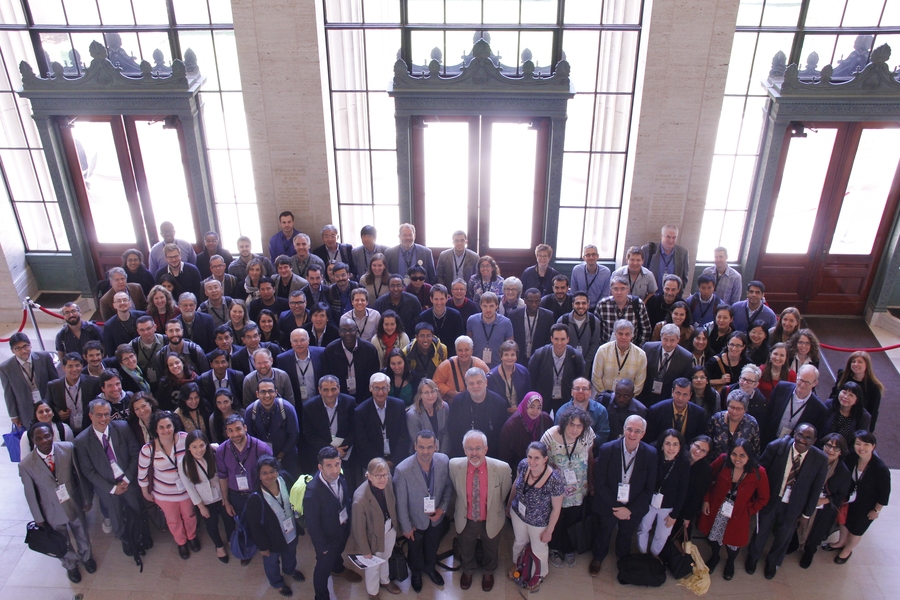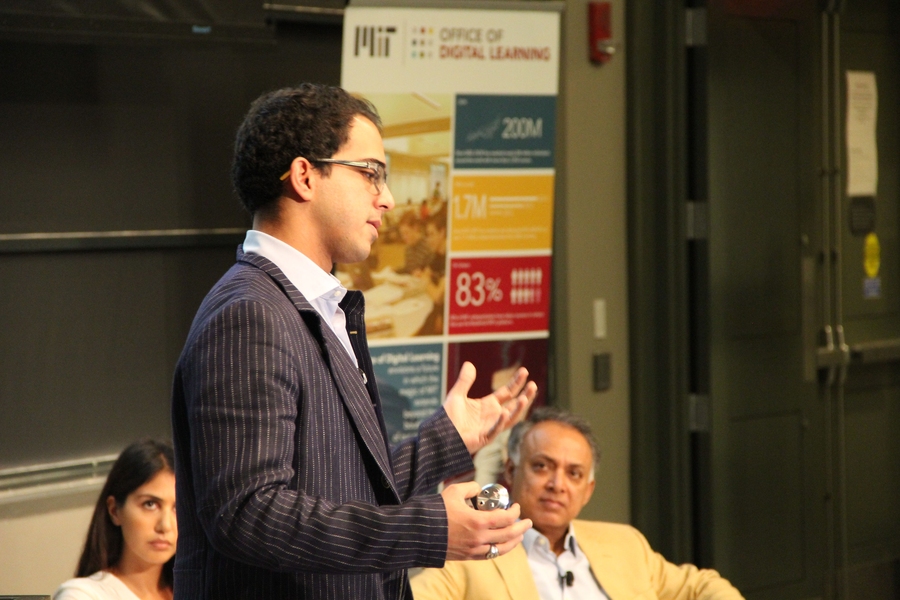The 2016 LINC Conference, which concluded three days of sessions on May 25, brought more than 250 of the world’s leading educators, technology entrepreneurs, and digital learning experts to Cambridge, Massachusetts. Hosted by MIT’s Office of Digital Learning, LINC 2016 offered a forum for participants to collectively — and passionately — discuss the theme of “Digital Inclusion: Transforming Education through Technology.” The conference explored how digital learning technologies can help democratize education globally and how to best overcome the growing problems of access, quality, and cost of education in developing nations and emerging economies.
“The conference was set at a time of great expectations,” says Vijay Kumar, associate dean of digital learning at MIT. “Expectations about change, about access to education. There is a whole new breed of learners that require different solutions, and there’s also a push to make education more relevant, more accountable. So, the economics and ecology of education are changing.”
With that context in mind, LINC 2016 centered around five plenary sessions plus related keynotes and panel discussions:
- Providing quality education at scale: Arthur Levine, president of the Woodrow Wilson Foundation, delivered the keynote speech for this track and discussed how education must adapt to the shift from an analog and industrial society to a global, digital, and informative society. This is an area where the integration of digital learning technologies – online courses, virtual and interactive classrooms, simulations — becomes critical. In the past, providing quality education to a large audience typically meant proportionately large costs. Now, digital technologies enable educators to keep costs down without sacrificing quality, which makes delivering education to diverse learners across the world all the more possible — and powerful. Case in point: the MITx MicroMaster’s program, which enables students to earn credentials from an elite university whether they live in Cambridge or Cambodia.
- Understanding learning engineering: Sanjay Sarma, vice president of open learning at MIT, gave this track’s keynote address and asked the audience to ponder the basic tenets of cognitive and authentic learning. Understanding how people learn is critical to understanding how — and when — to apply digital technologies for education. This is where “learning engineers” come in, designing new approaches to the practice of learning. Online education is not as simple as posting coursework on the internet; courses need to be re-engineered for the digital environment. By taking advantage of the available technologies, educators can create a blended learning experience, enhance the curriculum and, ultimately, improve outcomes for students.
- Bridging the educational divide: Maysa Jalbout, CEO of the Abdulla Al Ghurair Foundation for Education, highlighted the plight of young Arab students, many of whom are displaced refugees or trapped in conflict. Some 110,000 youth simply do not have access to higher education, a barrier that has led to very high unemployment and a generation seemingly lost to history. Yet most of these students are online, so the potential to bridge the digital divide to facilitate learning exists. This session introduced one of the biggest highlights of LINC 2016: A new collaboration between MIT and Al Ghurair to expand access to and use of digital learning environments in the areas of science, technology, engineering, and math (STEM) for learners worldwide — specifically among Arab youth.
- Tools for the Digital Learning Experience: Anant Agarwal, CEO of edX, provided a “state of the union”-style address on massive open online courses (MOOCs), discussing the success of the open source edX platform as well as specific ways to improve the digital learning experience. He also examined how to ensure the integrity of online education, from timed and virtually proctored exams to cheating-prevention tools.
- Role of digital learning for students of all ages: MIT President Rafael Reif highlighted some of the Institute's landmark initiatives, noting that “educational innovation is a part of the DNA at MIT.” Reif championed MIT’s OpenCourseWare program as a means for quality education for students of all ages, anywhere in the world. MIT continues to be a driving force for change within global education. President Reif launched a taskforce in 2014 to specifically study the implications of what Kumar calls “the blurred boundaries of learning” — physical and digital, local and global, textbook to hands-on — and it was the taskforce’s recommendations that served as a guide to the conference’s topics.
LINC 2016 also featured several pre-conference workshops and parallel sessions, drilling deeper into the inherent problems — and innovative solutions — that create such fervent debate amongst this community of educators and entrepreneurs.
Some key initiatives to address quality at scale are already underway, including the MIT-Al Ghurair partnership and the Connected Learning Initiative (CLIx), a collaboration between MIT, TATA Institute of Social Sciences, and the TATA Trusts that aims to bring digital technologies and quality educational content to 165,000 students in India’s most underserved areas.
This was the seventh LINC Conference since 2003, and it will be remembered as a key turning point in both the community of digital learning as well as the conference itself. LINC founder Richard Larson announced that he will transition leadership to Sanjay Sarma. LINC will now be held every two years, with every other conference optionally located outside of the U.S., to help foster a vital community — and forge a strong bridge for the educational divide.












